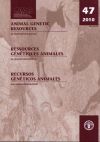Exploring Orissa’s animal cultures

The eastern Indian state of Orissa has a wealth of local livestock breeds, LPP’s Ilse Koehler-Rollefson has learned. She visited farmers who raise Ghunsur cattle and goats, a group of nomadic pig herders, and duck keepers near the coast.
She also took part in a “roadside university“, or pathe pathshala, run by Balaram Sahu, a veterinarian from Orissa, to discuss livestock health and management with local people.
Ilse Koehler-Rollefson. 2011. Exploring Orissa’s animal cultures with Dr. Balaram’s pathe pathshala. League for Pastoral Peoples and Endogenous Livestock Development.
Balaram Sahu. 2011.
10 days in a German village

In May 2008, Indian veterinarian and LIFE member Dr Balaram Sahu spent 10 days in Germany on an LPP-sponsored exposure tour. He stayed in Wembach, a small village in the Odenwald in southwestern Germany, where LPP has its headquarters.
Now Dr Balaram has written a book about his experiences. Written in Oriya, the language of the eastern Indian state of Orissa, it is an ethnography from an Indian viewpoint. The book describes donkeys and horses, sheep salami, organic products, the mayor of Wembach, and other local people.

The book was launched during a field trip in rural Orissa to visit nomadic pig pastoralists. These pastoralists graze their animals on the stubble left after the rice harvest. A sustainable and eco-friendly way to raise livestock. A long way from Germany in terms of distance, maybe, but not so far in terms of a philosophy of life.
New in Animal Genetic Resources

The newest issue of the journal Animal Genetic Resources contains two articles by LPP members:
Marketing products from local livestock breeds
An analysis of eight cases
Evelyn Mathias, Paul Mundy and Ilse Köhler-Rollefson
This 12-page article summarizes the book Adding value to livestock diversity published by LPP, LIFE Network, IUCN–WISP and FAO.
Abstract
Local breeds and minor species are hardy and able to thrive in harsh conditions. Their adaptive traits and unique characteristics (coloured wool or hides, extra-fine fibre, meat or milk with special tastes) offer opportunities for the marketing of speciality products and sustainable food production in marginal areas. This study discusses eight initiatives from Africa, Asia and Latin America that help communities to produce and market various products for niche markets: milk and dairy products from dromedaries; cashmere, wool and handicrafts from goats, sheep and Bactrian camels; and meat, meat products and handicrafts from goats and sheep. The main strategies were to seek new markets for existing or entirely new products (rather than trying to exploit existing markets). Most initiatives had some form of branding or labelling, and two had protected their products with geographical indications. Such marketing initiatives can be started with limited capital inputs but are skill and knowledge intensive. They require strong commitment to overcome seasonal fluctuations in production, the lack of infrastructure and services, and difficulties in institution building. But when well planned and carefully managed, they can help conserve breeds as well as provide a livelihood for people involved in the value chain, allowing actors earlier in the value chain – livestock keepers and small-scale processors – to capture a greater share of the value of the end product than they would by trying to serve a mass market.
Livestock keepers’ rights
The state of discussion
I.U. Köhler-Rollefson, E. Mathias, H. Singh, P. Vivekanandan and J. Wanyama
Abstract
Livestock keepers’ rights (LKR) is a concept developed by civil society during the “Interlaken process” and is advocated for by a group of non-government organizations, livestock keepers, pastoralist associations and scientists who support community-based conservation of local breeds. This study provides an overview of the rationale, history and content of LKR and suggests that biocultural or community protocols are a means of invoking the principles of LKR even in the absence of their legal enshrinement. It is concluded that besides striving for legal codification of LKR its principles should form the basis of pro-poor and ecological livestock development in general.
- Go to the previous page
- 1
- …
- 40
- 41
- 42
- 43
- 44
- 45
- 46
- …
- 87
- Go to the next page
